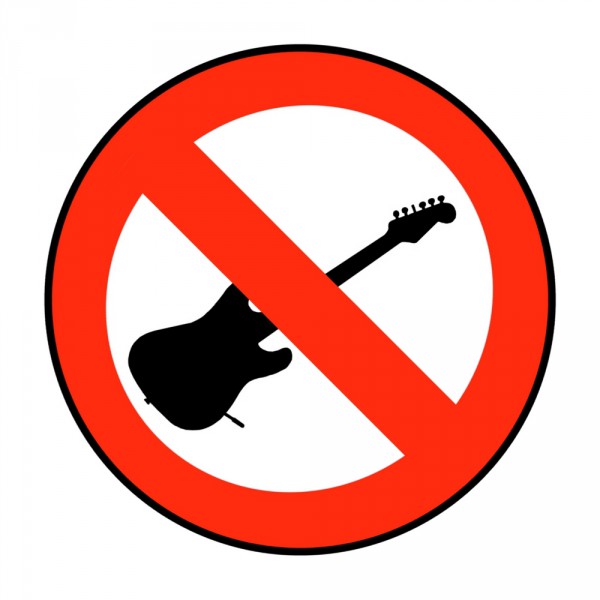
API ruling in Oracle's favor could have far-reaching consequences
In something of a surprise twist on Friday, a court ruled that Oracle is entitled to copyright protection for its Java APIs. This is a case that has been rumbling on for some time now after Oracle sued Google for implementing the APIs into Android, and the implications could be far-reaching. It almost goes without saying that Google will appeal the ruling, although no announcement has actually been made to this effect. The decision that "we conclude that the declaring code and the structure, sequence, and organization of the 37 Java API packages at issue are entitled to copyright protection" seems fairly cut and dried, but the real consequences are yet to be felt.
Back in 2012, it had been decided that there was not a problem with Google, or anyone else, writing code that performed the same function as existing APIs -- this is essentially what Google had to do when implementing the Java APIs in Android -- with the judge at the time stating that "duplication of the command structure is necessary for interoperability". But the latest ruling turns this on its head, which is not good news for Google. "We therefore reverse the district court's copyrightability determination with instructions to reinstate the jury's infringement verdict. Because the jury hung on fair use, we remand Google's fair use defense for further proceedings consistent with this decision".

New UK measures to combat piracy are far weaker than hoped for by copyright owners
A new deal could be struck between ISPs and representatives of the music and film industries in UK in a bid to combat online piracy. But the proposed scheme does not go anywhere near as far as had been hoped by the BPI (British Phonographic Industry) and the MPA (Motion Picture Association). Four of the country's biggest ISPs -- BT, Sky, TalkTalk and Virgin Media -- have come together to create the Voluntary Copyright Alert Program (Vcap) which has the aim of educating downloaders of pirate material of the error of their ways. As the name suggests, the program is completely voluntary.
There have been years of debate on the topic, and the BBC has seen documentation that shows ISPs will be doing little more than sending out letters to those suspected of downloading pirated material. The letters are described as having an "educational" tone, while the industry bodies had been calling for warning letters to be sent out alerting downloaders to the possibility of legal action. They had also asked for access to a database of web users known to have downloaded pirated material.

Surprise, surprise -- almost every piracy website features cyber scams
Many people think nothing of grabbing the latest episode of Game of Thrones, Blacklist -- or whatever the current show du jour may be -- via one of a seemingly endless number of sites that provide access to pirated material. If you've ever visited such a site, you'll be aware that there is always something of a payload. You'll find advertisements -- usually of a pornographic nature -- fake chat windows, misleading links and all manner of other nasties. For the web-savvy, this is nothing new, but for every tech-minded torrent aficionado who is able to traverse through the online ghettos with an element of safety, there are countless others who are less well informed. And the world of pirate material is a dangerous one for the novice.
While this may not be news in itself, the figures involved are really quite surprising. A report published by The Industry Trust reveals that virtually every one of the most popular sites used to download or stream pirated films and TV shows are riddled with malware or credit card scams -- a staggering 97 percent. The report goes on to suggest that 75 percent of people who have made use of such a site have then experienced problems with their computers. The study was limited to 30 of the most frequently used pirate sites, and monitored them over a two week period. Just one site was found to be free from malware or credit card scams.

Want to access Hulu via VPN? Tough luck!
The regionalization of the internet can be infuriating. Anyone living outside the UK is prevented from accessing the likes of BBC iPlayer, while those outside the US can’t listen to Pandora or use other country-specific streaming services. At least that's the theory -- there's always a work around, isn't there? There are countless anonymizing services that can be used to make it appear that you are somewhere other than where you truly reside, or even appear that you are nowhere at all.
These tools and VPN services can be used to trick websites into thinking you're a legitimate user who should be allowed to get your streaming fix from anywhere in the world. But no more! At least if Hulu gets its way. The TV streaming behemoth has had enough of non-US streamers making use of its servers and it is clamping down on the use of VPNs. A report by TorrentFreak reveals that Hulu is blocking IP addresses associated with VPN services in a bid to prevent unwanted tagging on.

UK set to make ripping your CDs and DVDs legal
Although you weren't ever likely to be the subject of a dawn raid from the Sweeney for doing it, until now it has been illegal under UK copyright law to make copies of digital media.
From this summer though the government is changing the current legislation so that you'll be able to transfer music to your MP3 player or make backup copies of your movies without any risk of getting your collar felt.

Kim Dotcom takes on politics and Bitcoin with the Internet Party
Kim Dotcom -- the man behind the infamous MegaUpload, and then Mega -- has been out of the spotlight for a little while, but now he's back with renewed strength. This time around he's not trying to launch a new service, but a new branch of his career. Not content with bringing free cloud storage to the masses, Dotcom is now venturing into politics, launching the Internet Party in New Zealand. He finds himself in an interesting position as he is currently fighting extradition to the US where he faces charges of infringing copyright.
As the name suggests, the Internet Party is concerned primarily with what's happening online. The party has a fairly simple mission statement. "The Internet Party was founded on the spirit of the Internet, to get an open, free, fair, connected and innovative society". It is described as "a party that will give you faster, cheaper Internet, create high-tech jobs, protect your privacy, and safeguard our independence".

UK digital download tax will cripple sales and damage the industry
Last week in the UK, the announcement of the new budget for the country was closely watched as citizens kept an eye on whether they'll be paying more for beer and whether taxes are going up or down. There's a lot to talk about in George Osborne's 2014 budget, but this is not the place to discuss most of what it involves. One thing is of interest for technology enthusiasts, though. The cost of digital downloads -- meaning ebooks, music and apps -- could be set to rise as the chancellor (the guy holding the purse strings) closes a tax loophole.
At the moment, companies offering digital downloads are able to avoid paying taxes in the UK by routing them through another country where taxes are lower. This is not a new technique, and there is nothing illegal about it. It is a loophole that has been exploited for many years, but now plans are afoot to close it off. What is this likely to mean? Well, it should come as no surprise that, ultimately, it's probably going to lead to higher prices for people in the UK.

The most popular stories on BetaNews this past week March 16 -- 22
Not a good week for Microsoft this week. Things kicked off as Mozilla shunned the Windows Store by opting to stop development of a modern version of Firefox and then things got a little awkward following the investigation of an employee involved in leaking information about Windows. The company then came under fire for accessing the email account of an individual, despite its claims that "Outlook and Hotmail email are and should be private".
There was better news as an LTE version of Surface 2 went on sale opening up a new income stream for the company and new mobile computing opportunities for customers. More good news for users came when OneNote was not only released for Mac, but also made free for all platforms. Mihaita wasn't overly impressed with the Mac version, though.

NSA lawyer says data collection occurred with tech firms' 'full knowledge and assistance'
The NSA story isn't new. Scratch that. It's not really a story; it's a saga. Just when it seems safe to feel that there can't possibly be any more revelations to knock us sideways... oops... there's another little surprise for you! Just a week ago, I argued that Google's encryption of Chinese web searches amounts to little more than a PR exercise, designed to try to get the disgruntled user back on its side. This is not something that is related to the NSA revelations. When we found out that the likes of Facebook, Microsoft, Google and Yahoo (to name but a few) had been handing data over to the US government, all of these companies were falling over themselves to appear to be doing everything they could legally do to let their customers know what had been happening with their data.
Of course, it's not just the UK that has this problem, although that’s certainly where the attention has been focused -- the UK had (or possibly has) its own Optic Nerve program which was used to spy on webcam chats. The story we have heard time and time again is that these companies did not know what was going on. That the government had been collecting data without their knowledge. There were concessions that in some cases, FISA requests had been received but there were limitations on what could be publically revealed. Each company tried to outdo the others by appearing to reveal as much data as it could as quickly as humanly possible.

Google's Chinese web encryption is nothing more than PR and posturing
We are spied upon. Someone, somewhere, knows what you have been doing online. It might be your snooping friend taking a look at your browsing history, or it might be that weird looking guy on the next table in the coffee shop watching your every click. It might be advertisers using cookies, or it could be your own government. This is now just about expected; it is part and parcel of using the internet. In some parts of the world, access to the internet is not only monitored, but also restricted and controlled. But it didn’t used to be like this, and it needn't stay like this.
In some regions the idea of mass spying is a relatively recent concept. The activities of the NSA, GCHQ and other government organizations are something only the most recent generation of internet users is "used" to -- for the rest us, it is at best an unpleasant sea change, and at worst just the tip of the iceberg. As it was revealed that governments were not only spying on citizens' online activities but also getting other companies involved by requiring them to hand over user data, big names such as Microsoft, Google, and Apple were falling over themselves to appear to be going out of their way to reveal everything they could about the demands made of them. It was the PR machine in action, trying to make the best of a very, very bad situation.

A digital bill of rights is essential to the future of democracy
If there was ever anyone more qualified to talk about the web than Tim Berners-Lee, I would like to meet them. The man responsible for inventing the World Wide Web (a heavy burden for anyone to carry, I'm sure) joins us today in celebrating the 25th anniversary of the web.
But the big news isn't that Berners-Lee has been able to watch his baby grow up, go through a difficult teenage stage and flourish into adulthood, bringing us up to the quarter century the web has been with us. The real news is the inventor of the web calling for a "digital bill of rights".

Cover up your bits! Vine bans porn
The internet is awash with porn. If you want to find something a little titillating, have a taste for the weird, or just want some good old fashion hardcore, you don’t have to look too far to satiate that desire. But if you have been looking to Vine to get your kicks -- and seriously, there must be some better places to look! -- you're going to have to turn your attention elsewhere, as a complete porn ban has been put in place.
It does not matter if you want to share porny videos of yourself with a loved one privately, everything that falls into the category of "Pornography and Sexually Explicit Content" is outlawed. Vine's terms of service state in no uncertain terms that "You may not post Content that... Is pornographic or sexually explicit", and the Vine Rules make it abundantly clear what is permitted and what is not.

The most popular stories on BetaNews this past week February 23 -- March 1
Webcam porn! Spying! Cell phones! Bitcoin controversy! Just another normal week in the world of tech news! Bitcoin exchange Mt Gox disappeared offline amid concern about missing millions and then filed for bankruptcy. After panic spread through Mac users following the discovery of a serious SSL bug in Mavericks, Apple released an update that plugged the hole -- but it was also discovered that iOS 7 has a keylogging vulnerability. Microsoft released Service Pack 1 for Office 2013, but anyone using Office 365 will need to force the installation of newer updates in order to reap the benefits.
Security updates are all well and good for operating systems and applications, but it will do little to protect you against the wandering eyes of government agencies. As if everything we have already learned about the activities of the NSA et al, this week's revelations about what the UK's GCHQ has been getting up to is sure to raise ire. Not content with logging emails and web searches, the UK intelligence agency apparently spent a number of years tapping into the webcam chats of millions of Yahoo users. There may be little good news in this revelation, but it was at least slightly amusing to find that the surveillers were rather taken aback by the amount of pornographic content they encountered. It makes ya proud!

Spotify agrees to block user-created Ministry of Sound playlists
Spotify is all about streaming music, creating playlists and sharing them with others. Who doesn't relish the idea of creating the ultimate mixtape and sharing with not just their best friend, but the whole world? Music fans love it, and so do the musicians who earn royalties from making their work available.
But Ministry of Sound felt a little differently about things. Back in September, the dance brand took Spotify to court, claiming that the music streaming service was refusing to delete playlists created by users that mimicked the tracklisting of Ministry of Sound releases.

UK's Optic Nerve program spied on millions of Yahoo users' video chats -- found porn
It sounds like something from a James Bond film -- or something from a creepy news story about a landlord stalking one of his tenants -- but the headline relates to a real story. We're all only too aware of the activities of the NSA and other governmental agencies monitoring the telephone and internet activities of people around the world, but the latest revelations see things taking a turn for the seriously sinister.
The UK intelligence agency GCHQ, between 2008 and 2010, tapped into the webcam chats of millions of Yahoo users.
